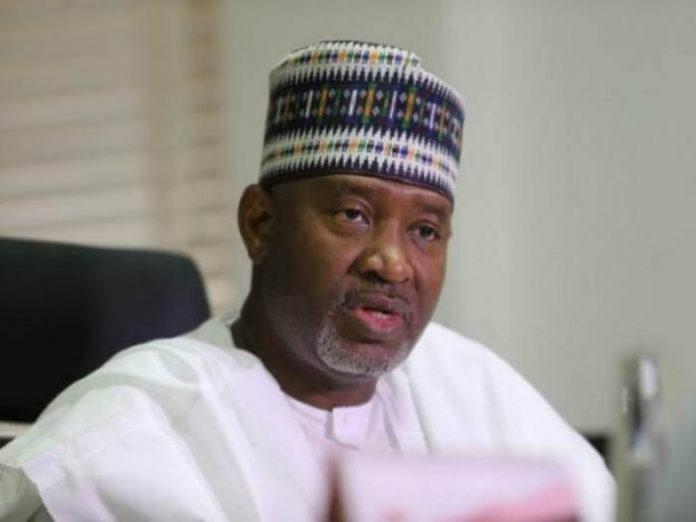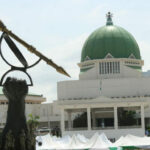Last week in response to threats by foreign airlines to withdraw their operations on the Nigerian route over their inability to repatriate their funds in foreign currency, the Central Bank of Nigeria (CBN) released the sum of 265 million dollars to settle the outstanding sale of tickets.
The amount, released in two tranches, one 230 million dollars as special foreign exchange intervention while another 35 million dollars through auction, was to ease the remittance of funds belonging to the airlines trapped in Nigeria as a result of scarcity of foreign exchange. The total sum of money belonging to the airlines and trapped in Nigeria is $465million.
The Director, Corporate Communications of the CBN, Osita Nwasiobi, who announced this said that “With the release, it is expected that operators and travellers as well will heave a huge sigh of relief, as some airlines had threatened to withdraw their services in the face of unremitted funds for the outstanding sale of tickets’’.
Before this intervention by the CBN, there had been a serious concern across the board that should foreign airlines make good their threats, Nigeria will be cut off from the world as many Nigerians would not be able to travel abroad for official businesses and other necessary needs. Indeed, to bring home the reality of the situation, some of the airlines had given notices to travel agents not to accept bookings in naira as that would not be honoured.
It is a good thing that the CBN has intervened, though it would have been better if it were done before the withdrawal threats were issued. This is because issues such as this have the potential of denting the country’s image. We urge the federal government to ensure that the total sum is released to the airlines as soon as possible.
That said, it is important to take a look at the root of the issue, which has to do with the obligations of the federal government under the Bilateral Air Services Agreement (BASA) signed with countries the various foreign airlines come from. Essentially, airline operations between countries come under this agreement, which covers a range of services from air transport, overflying of airspace, technical support, code sharing and the like. The agreement provides for reciprocity in which airlines operate flights and enjoy services in the aviation sector of both countries.
From records at the Nigeria Civil Aviation Authority (NCAA), the agency under the Ministry of Aviation, which handles such agreements, as of 2019 Nigeria had about 92 BASA agreements with foreign countries. The records further show that about 25 foreign airlines operate flights in Nigeria.
Aviation stakeholders have, however, lamented in the past that although the air agreements were intended to create opportunities for Nigerian airlines, it is the foreign airlines that benefit more.
Aviation Minister, Hadi Sirika, who admitted this, regretted that while many of the agreements have been reviewed to favour domestic carriers, the opportunities have only remained at merely 10 per cent utilisation due to limited capacity.
Due to this slack, foreign airlines have over the years been increasing their frequencies into Nigeria from multiple destinations, thereby, making Nigeria a convenient market for foreign airlines to scoop revenue.
This should serve as a timely opportunity for a review of operations of the aviation sector. For some time now, the local aviation sector, which used to be vibrant with several airlines competing robustly has been facing a myriad of issues. Spiralling cost of aviation fuel, paucity of foreign exchange to secure spare parts and service aircraft amongst other factors have led to some of the domestic carriers closing shop or scaling down their operations drastically. All these resulting in the prohibitive cost of air travel portends a bleak future for the aviation sector.
Also from the current impasse with foreign airlines, it stands to reason that BASAs need a comprehensive review. In this regard, we must discourage the practice of allowing foreign airlines multiple destinations, which invariably works to the disadvantage of domestic carriers. We must restrict them to two destination points from where local carriers will feed them with passengers coming from points within the country. Also, as it is obtained in some countries, we must consider asking foreign airlines to pay a percentage of the ticket sales of an additional frequency and destination, which will be used to upgrade the aviation sector.
Above all, we firmly believe that plans for the establishment of a national carrier must not be further delayed. We note that the Minister of Aviation whose responsibility it is to launch this project has not been forthcoming on the progress made so far. Having twice made Nigerians to expect the take-off of this project, nothing concrete has come to fruition. A well- established national carrier will certainly help to pick up the slack in not only competing with foreign airlines, but also in conserving foreign exchange for the country.
Nigeria’s aviation sector, which has been identified as one with great potential to grow in the coming years must be positioned to realise this objective for the ultimate benefit of the country.

 Join Daily Trust WhatsApp Community For Quick Access To News and Happenings Around You.
Join Daily Trust WhatsApp Community For Quick Access To News and Happenings Around You.


